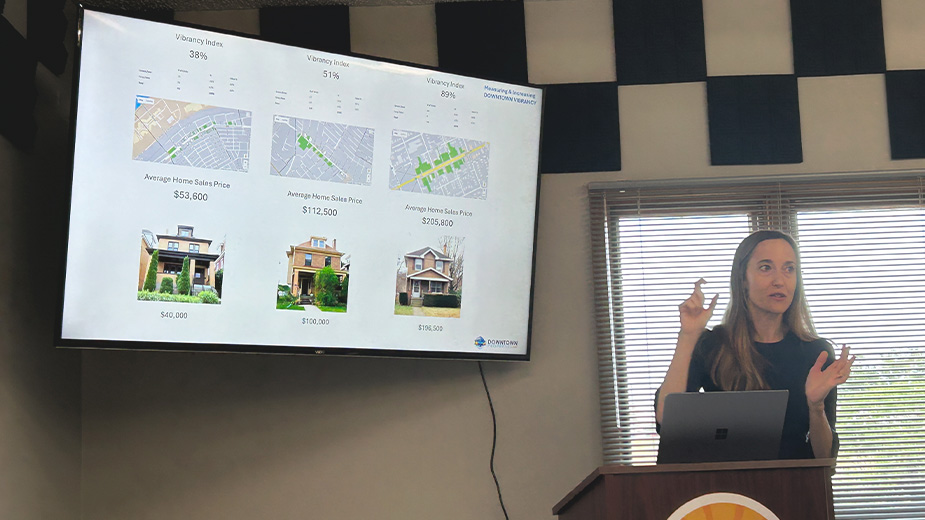TJX Rezoning Hearing Set for This Morning
WARREN, Ohio – Defendants in the complaint filed by opponents of a Lordstown zone change urged a Trumbull County common pleas judge to dismiss the complaint.
In separate filings ahead of this morning’s hearing, the village of Lordstown and the state of Ohio called on Judge Peter Kontos to dismiss the Aug. 22 complaint filed by the Committee of Lordstown Concerned Residents and its treasurer, Brett Dickson, requesting a permanent injunction. The group’s filing challenges the constitutionality of provisions of a state law passed earlier this year that permitted the referendum of the rezoning of seven parcels in Lordstown where TJX Companies Inc. wants to build a 1.2-million-square-foot regional distribution center.
The village filed its motion to dismiss Monday afternoon. The state made its filing Friday morning, in which Susan Sheffield, a senior assistant attorney general for Ohio, argued that today’s hearing is not necessary.
Kontos, who last month rejected the plaintiffs’ request for a temporary restraining order in the case, is scheduled to hear the case at 10 a.m.
Dickson and his group filed their action in Trumbull County Common Pleas Court the day after village voters upheld the rezoning of seven parcels totaling nearly 300 acres where TJX intends to build the $160 million-plus distribution center to serve its HomeGoods stores.
In June, Village Council voted on a series of 3-2 votes to change the zoning of the seven parcels from residential to industrial, with Councilman Ron Radtka, whose family owns some of the property where TJX plans to build, abstaining due to the conflict of interest.
The lawsuit challenges as unconstitutional sections of House Bill 292, the state law that permitted Lordstown Village Council not to count Radtka’s seat for the purpose of determining the required number of votes for Council to approve the legislation authorizing the rezoning when he abstained, and to permit any referendum challenging the rezoning to take place this summer.
The zoning opponents’ plea charges that the law violates the Ohio Constitution’s one-subject rule and uniformity clause. In their separate pleas, both the village and the state argue that the one-subject rule permits a plurality of topics so long as a “common purpose” exists among the topics.
In its filing, Lordstown asserted the claims made by the plaintiffs fail because H.B. 292 doesn’t violate either the Ohio Constitution’s uniformity clause or the single-subject rule as a matter of law, and are barred by “the doctrines of laches and mootness” because they waited until after the election to seek relief.
The Ohio Supreme Court, Lordstown claimed, “only requires a general common purpose or relationship between the topics,” in the case of H.B. 292, addressing economic funding of public entities.
It also said the sections at question in H.B. 292 “operate in a uniform manner” within the uniformity clause because they had the potential to apply to any Ohio village meeting their “operative provisions.”
Among the four rules that the state of Ohio follows in guiding its single-subject inquiry are that multiple topics aren’t “fatal” to a bill, so long as a common relationship exists between them, and disunity of subject matter must rise to the level of a “manifestly gross and fraudulent” violation to invalidate a bill, according to the state’s filing to dismiss.
Though the provisions do not address H.B. 292’s initial purpose, clarifying Ohio residency for the purpose of tax collection, how much the bill strays from its original intent doesn’t matter. “When evaluating a single-subject challenge, the [c]ourt must look to the final law,” the state’s filing argues.
The village also said H.B 292’s constitutionality doesn’t affect the validity of Village Council’s votes approving the rezoning of the parcels; the plaintiffs haven’t articulated any “irreparable harm” or demonstrated that they have standing to pursue their claims; the plaintiffs had “an adequate penalty at law” for the referendum petition — and elected to use it; and there is no “justifiable controversy that exists” because both sections of the bill expired already.
Copyright 2024 The Business Journal, Youngstown, Ohio.



